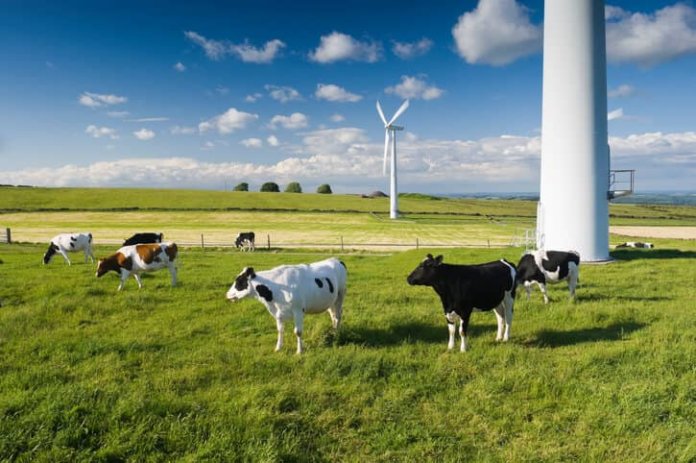Alliant Energy, which serves electric and natural gas customers across Iowa and Wisconsin, has released its corporate sustainability report, highlighting the company’s renewable energy efforts.
Alliant Energy says it has been transitioning toward cleaner energy for more than a decade. Between 2016 and 2020, the company expects to spend approximately $2 billion on new company-owned wind generation. By the end of 2020, Alliant Energy will own 12 wind farms with the capacity to power nearly 600,000 homes; this equals the energy needed to power about 60% of the company’s residential customer base.
“Our world is changing – and so are we,” says John Larsen, president, CEO and chairman of Alliant Energy. “We’re listening to our customers, employees and key stakeholders and continuing to evolve how we do business. Every day, our work is focused on enhancing the environmental, social and economic conditions of the communities we have the honor to serve.”
Alliant Energy is targeting a 40% reduction in carbon emissions below 2005 levels by 2030 and an 80% reduction by 2050. It also plans to eliminate all existing coal from its energy mix by 2050.
Other highlights detailed in Alliant Energy’s corporate sustainability report include as follows:
- Near-term capital investments from 2019 through 2022 focusing primarily on adding renewables and distribution improvements;
- Two planned solar gardens adjacent to the company’s newest natural gas-fired generating stations;
- Counties with existing wind farms, combined with those being built and developed, sharing an estimated average of $18 million a year in tax payments and utility-shared revenues by 2028;
- Hiring a goat herd to eat invasive plants where using equipment would be a challenge and where pesticides could impact the environment;
- Installing most new electric lines underground, as well as burying those that need replacement or upgrade;
- English Farms and Upland Prairie wind farms earning Envision Platinum ratings;
- Eighty-two percent annual landfill diversion rate achieved for large construction projects;
- Rebates to 315 residential and 15 non-residential customers for electric vehicle charging stations; and
- Community investment of $7.4 million and nearly 90,000 volunteer hours in 2018, including $2 million for electric and heating bill assistance to families in need.




